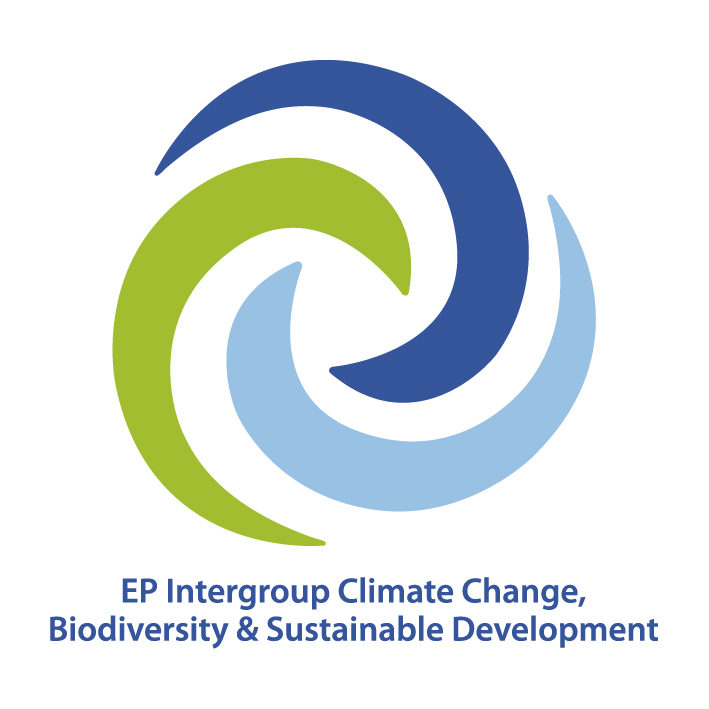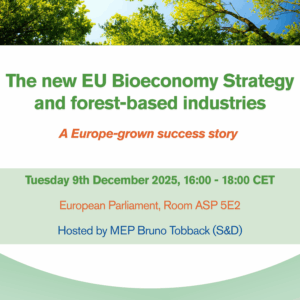
Hybrid Event: Fire safety and Europe’s climate ambition: The role of sustainable flame retardants in Europe’s energy transition
14 February 2024, 12h45 – 14h15 CET
European Parliament (room: A5E-3) & online
The event is hosted by MEP Adam Jarubas
The materials needed to ensure Europe’s climate ambition of cutting greenhouse gas emissions by at least 55% by 2030 will increasingly be organic and require appropriate fire safety measures in place to reduce fire risks.
To ensure that Europe is on a responsible path to becoming climate neutral by 2050, fire safety should be considered as one of the key parameters when assessing the sustainability and circularity of the materials needed to transition key sectors in our society, such as energy, transport, and housing. For instance, the transition to electric vehicles and renewable energy production (e.g., solar panels, batteries) present new and increased fire risks to the built and transport environment. Without appropriate measures, we run the risk of increasing fire incidents (over 5,000 people every year are taken from their loved ones prematurely from residential fires in Europe and the number of people injured is about 10 times as high). These fire risks can be reduced by appropriate design and materials as well as incorporating other safety measures, such as improved fire safety engineering for buildings and vehicles.
pinfa, the Phosphorus, Inorganic and Nitrogen Flame Retardants Association, would like to propose an event to address the emerging fire safety challenges associated with Europe’s energy transition and role of sustainable flame retardants, among other safety solutions, in ensuring that we meet European fire safety standards within the context of the Chemicals Strategy for Sustainability (CSS).
Topics proposed for discussion include:
- What is a sustainable Flame Retardant?
- Safe and Sustainable-by-Design: First learnings from Flame Retardant case studies
- The pinfa roadmap for the Chemicals Strategy for Sustainability
- The ECHA Strategy on Flame Retardants
- The challenge of Recycling and circularity
- Essential use concept – can it be applied to Flame Retardants?
Background:
pinfa is the Phosphorus, Inorganic and Nitrogen Flame Retardants Association and is a Sector Group within Cefic, the European Chemical Industry Council.
pinfa represents the manufacturers and users of non-halogenated phosphorus, inorganic and nitrogen flame retardants (PIN FRs). The members of pinfa share the common vision of continuously improving the environmental and health profile of their flame retardant products and seek to dialogue with the users of PIN FRs in order to identify their needs and technologies they are looking for. This vision is coupled with a commitment to maintain high fire safety standards across the world, standards which minimize the risk of fire to the general public.
pinfa members strive to:
- Reduce the risk of fire from products, by using flame retardants only where appropriate (technically, economically and environmentally) – giving flame retardants the proper role within the fire safety “toolbox”;
- Minimize environmental and health impacts of fire and smoke, and of PIN flame retardants – provide information and data to demonstrate the safety of flame retardants;
- Enable recycling of flame retardant products and making them fit for the circular economy;
- Collaborate with all relevant stakeholders like regulators, science and industry
pinfa works in partnership with stakeholders (NGOs, environmental, consumer associations, scientists, regulators, fire safety experts, user industries) to ensure safe use of flame retardant products.
AGENDA:
12:45 – 12:55: Opening remarks by hosting MEP Adam Jarubas
12:55 – 13:05: Key note presentation by Adrian Beard, Chairman, Pinfa Europe
13:05 – 13:45: Panel discussion with the participation of:
- Irantzu Garmendia Aguirre, Project Officer, Joint Research Center
- Chris Slootweg, University of Amsterdam
- Laurent Tribut, Technical Expert, Schneider Electric
- Krzysztof Biskup, Chair of the European Fire Safety Alliance
13:45 – 14:10 Q&As session with the audience
14:10 – 14:15 Closing remarks by hosting MEP Adam Jarubas


